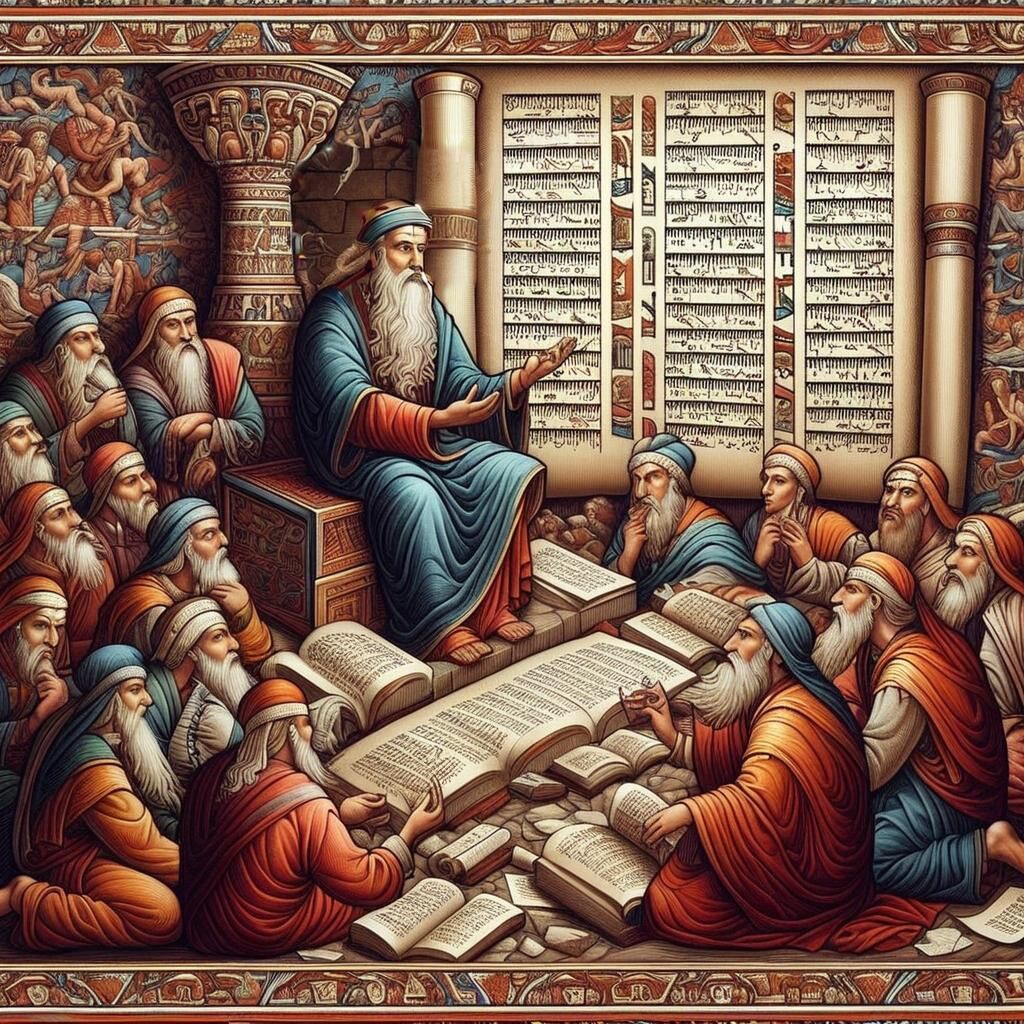Greetings, saints of the Most High! Welcome to another installment of the Messianic Torah Observer. Today, we delve into the intriguing topic of our Melchizedekian Priestly Pedigree, focusing on Jasher’s hidden chronicles.
In Part 3, we explored the theological implications of the Avram-Melchizedek encounter, discussing the dual offices of priesthood and kingship, the blessing conferred upon Avram, the significance of tithing, and the mysterious nature of Melchizedek. We also examined various religious perspectives on Melchizedek, including those from Catholicism, Islam, and Messianic Judaism.
Jewish legend and tradition often identify Shem, Noah’s righteous son, as Avram’s Melchizedek. However, there are several issues with this theory, including the lack of canonical biblical evidence and the improbability of Shem’s lifespan overlapping with Avram’s. Despite these concerns, the book of Jasher perpetuates this connection, presenting a narrative where Shem is indeed Avram’s Melchizedek.
Jasher’s account embellishes the biblical story, referring to Melchizedek as Adonizedek and describing a community meeting with Avram, bearing bread and wine. Interestingly, Jasher omits Melchizedek’s blessing of Yehovah, a curious detail given some ancient rabbinic opinions.
The narrative continues with Shem passing his prophecy school to Eber, his great-grandson, while the Melchizedekian priesthood is conferred upon Avram. This lineage, according to Jasher, includes notable figures like Adam, Enoch, and Noah, culminating in Avram.
However, the Jasher narrative raises questions about the authenticity and accuracy of these accounts. The Melchizedekian priesthood, as described in the Torah, operates outside biological heritage lines and temple sacrificial systems, foreshadowing the Spirit and Truth worship Yeshua spoke of.
Despite the conflicts between Jasher’s and the Torah’s accounts, we can glean significant insights into our Melchizedekian priestly pedigree. Concepts of righteousness, priestly conduct, obedience, and steadfast commitment to the faith form the foundation of our priestly calling. As students of Yahoshua’s Great School of Prophecy, we are in a season of training and preparation for our future roles in the Kingdom of Yehovah.
In conclusion, while I have my reservations about Jasher’s account, it offers valuable lessons about the godly elements that make up our Melchizedekian priestly pedigree. As we continue this series, we will explore these elements further, preparing us to serve as Melchizedekian kings and priests in the coming Kingdom of Yah.
May you be most blessed, fellow saints in training. Let us embrace our calling and prepare for the roles we are destined to fulfill.
Hebrew Roots and Torah Portions–Are Torah Portions Valid for Messianics
I have always been one to think: if one person has a question on a particular topic or issue that I have posted on this program, it stands to reason that there are others out there who have the same question. Recently I received feedback from a dear listener of this...
Messianic Lessons From The Revolt of Korah
The Players of this Torah Portion The players of this passage are: Moshe, Aharon (Cohen Gadol); Korah (a Levite of which he and his family and lineage served with the Aaronic Levitical Priesthood--he was not a priest but a most blessed assistant and servant to YHVH);...
Impediments to our Faith-Absence of Discipleship and the Holy Spirit Operating in the Lives of Believers (Part 2)
It goes without saying that many of us have a difficult time grasping the things of YHVH, especially when we first transition into our Faith Community. It’s one thing to decide to give up pork and shell fish and to start worshiping on Sabbaths as opposed to...
Yeshua Messiah (aka Jesus Christ) as our Apostle and High Priest
During my morning studies today I was led to pick up where I left off from this past Sabbath's Brit HaDashah reading that is found in Hebrews 3:1-6. Interestingly enough, roughly 1-1/2 to 2 hours after beginning the study, I had not progressed beyond verse one. For...
Messianics Dedicated to Service
This Week's Torah Portion-Beha'Alotekha-The Menorah On this Shabbat, I was blessed to read and reflect upon this week's beautiful Torah Portion entitled Beha'Alotekha-The Menorah. The portion was contained in Numbers, chapters 8 through 12, And I don't know if it's me...
Impediments to our Understanding Things of the Faith–Part-1–Understanding the Bible
Many of us have a hard time grasping the things of YHVH. There seems to be impediments to our receiving, understanding and applying the things of our Faith. Indeed, there are many impediments that we could explore. However, for this post we will consider those...
The Torah Observant Believer in Yeshua Messiah as Slave
Paul opens his letter to the assembly of Messianic Believers in Rome with an introductory bio of himself. He writes: "Paul, a bond-servant of Christ (i.e., Messiah) Yeshua, called as an apostle, set apart for the gospel of God (i.e., Yah)..." (Romans 1:1; NASB). Other...
Keeping Shavuot–The Feast of Weeks–Pentecost–Its Importance and Meaning to Messianic Believers Today
For the Torah Observant Believer in Yeshua Messiah, Shavuot—The Feast of Weeks—Pentecost is about the giving and receiving of YHVH’s Torah and the establishing of the marriage covenant between YHVH and the Children of Israel. The Feast of Weeks is about...
Feast Pilgrimages to Israel–Messianic Lessons Learned from Shemitah
Pilgrimages to Israel for the Feasts of YHVH Question Posed: Are We Suppose to Conduct a Pilgrimage to Israel Today? The question has been posed and sadly has been incorrectly answered some: Are we obliged to keep Unleavened Bread, The Feast of Weeks...
Living a Life Beyond the Norm–Lessons Learned from the Levitical Priesthood
Organizations establish standards by which its members' job performances are judged. There are set standards and job performance levels that separate an average from an exceptional worker. A member's job performance when compared to those standards may determine that...

